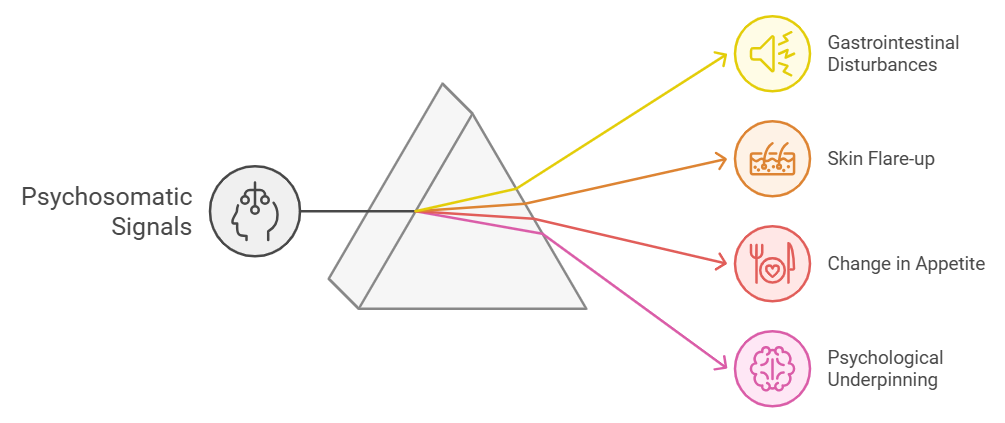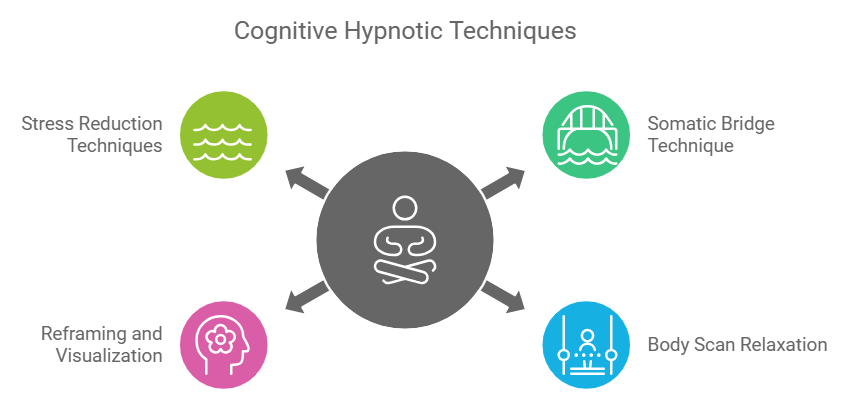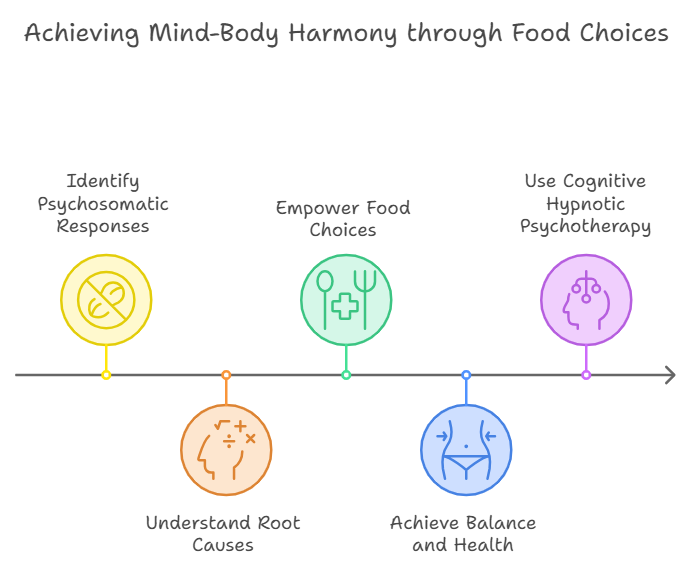Introduction: The Unseen Influence of the Mind on the Body
Have you ever felt butterflies in your stomach before a big event or lost your appetite during a bout of sadness? Our bodies and minds share a profound connection that often manifests in surprising ways, especially in our responses to food.
Identifying Psychosomatic Responses to Food
Recognizing the Signs
Becoming attuned to psychosomatic signals involves keen observation. It’s about noting when you experience gastrointestinal disturbances, that skin flare-up, or a sudden change in appetite in response to stress, emotional upheaval, or even subconscious thoughts.
Understanding the Symptoms
Fatigue, bloating, nausea, heartburn, or a change in weight can all be symptoms signaling a psychosomatic connection. By considering the context of these symptoms – the whens, whys, and hows – a pattern may emerge, revealing a psychological underpinning to your physical experiences.

Cognitive Hypnotic Psychotherapy Techniques for Psychosomatic Issues
Cognitive Hypnotic Psychotherapy merges cognitive-behavioral strategies with hypnosis to help individuals address the deeper psychological aspects of their physical reactions to food. Here are some specific techniques:
- Somatic Bridge Technique: This technique uses bodily sensations as a bridge to uncover related unconscious emotions or memories. By focusing on the physical symptom and then shifting into a hypnotic state, the patient can access and process the psychological factors contributing to the condition, creating a deeper awareness between mind and body triggers.
- Body Scan Relaxation: Using hypnosis to achieve deep relaxation, this technique helps the individual become more aware of bodily sensations and responses. Patients may discover that paying close attention to their bodies allows them to discern between physical hunger and emotional ‘hunger’.
- Reframing and Positive Visualization: Through guided hypnosis, a practitioner can help reframe an individual’s perception of their body’s responses. Positive visualization encourages a different psychosomatic reaction by altering the negative associations tied to certain foods or eating situations.
- Stress Reduction Techniques: Since many psychosomatic symptoms are exacerbated by stress, Cognitive Hypnotic Psychotherapy provides tools for stress reduction. Techniques such as progressive muscle relaxation or self-hypnosis can decrease overall stress levels, potentially improving psychosomatic symptoms.

Desensitization: If certain foods trigger negative bodily responses due to past traumas or negative experiences, desensitization under hypnosis can help patients gradually reduce and eliminate those reactions by slowly and safely confronting these triggers in a controlled environment.
Deciphering the Language of the Body
Utilizing these techniques can pave the way for healing, allowing individuals to understand the genuine needs of the body beyond the surface-level cravings or aversions. It’s about learning the unique language of your body and uncovering the emotional factors that influence your physical well-being.
Conclusion: A Harmonious Mind-Body Connection
As we unveil the root causes of our psychosomatic responses to food, we step closer to achieving balance and health in every aspect of our lives. This understanding empowers us to choose foods that nourish both body and soul, leading to a more connected and harmonious existence.
So, the next time you reach for a comfort snack or find yourself reacting to a meal, take a moment to listen – your body may be communicating something vital. With the help of Cognitive Hypnotic Psychotherapy, you can learn to not only interpret these messages but also respond in ways that support your total health.





